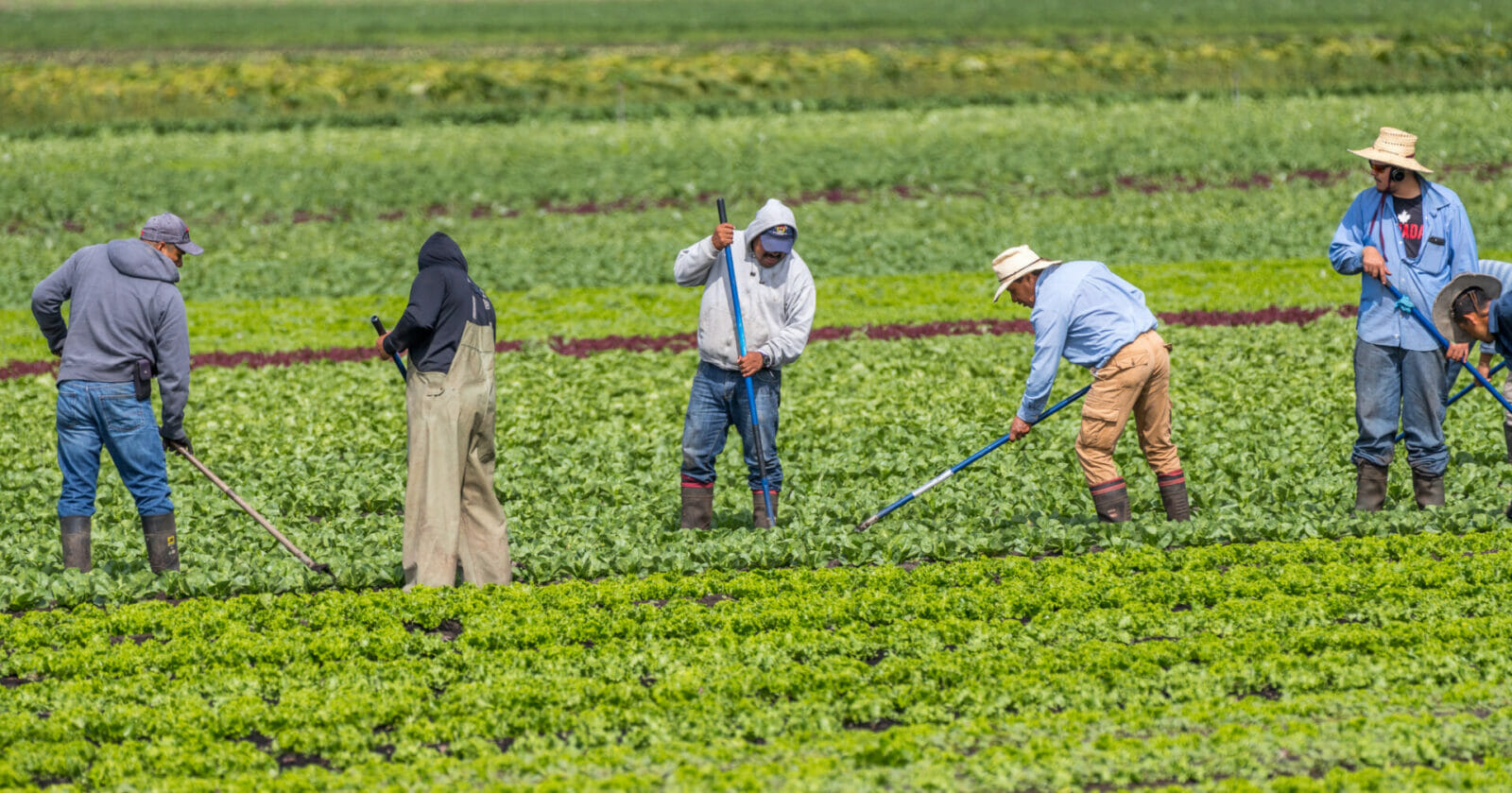Making Our Humanity Visible and Our Voices Heard: America’s Essential, Invisible Food Industry Workers

In this three-part blog series, Natalye Paquin, Points of Light’s president & CEO, explores how the impacts of a global pandemic and social unrest bring to light the vulnerabilities in our society, and how we can take action to make change. This is the first blog in the series.
The economy is a huge part of the COVID-19 story – whether you’re talking about the impact the pandemic has had on our economy or the concerns for the economy that, perhaps, slowed some states from issuing stay-at-home orders.
There’s also the part of our economy that kept going during the crisis because it had to – hospitals, pharmacies, delivery services, transit systems, public works. We – rightly – held up these essential workers as heroes. And we gave a second thought to what “essential” really means.
But there was one area that didn’t get as much recognition for being essential. Farms and food processing plants are a huge and unquestionably essential part of our economy. But those workers didn’t get the same hero treatment. Their work is invisible – until there’s a problem – and we seem strangely ok with that as a society.
More than half (53%) of farm workers in America were born outside the U.S., according to the Department of Labor. Among meat-packing workers, 44% are Latino and 25% are African American, according to an analysis by the Center for Economic and Policy Research.
As the pandemic continues, this “invisible workforce” is becoming visible. And as we begin to acknowledge its role in our society, we must also ask ourselves how society would function without it.
To me, this is a lot like the bus boycott in Montgomery in 1956, when African Americans, in protest, refused to ride city buses. Rather than pay a fare to support a system that treated them as second-class, they walked. It was a tipping point. It showed the importance they played in making the entire bus system work.
What if our farm and food processing plant workers did the same thing? What if they simply said: Find your own farm labor. Harvest your own vegetables. Clean your own chickens. Pack your own meat.
That they haven’t is remarkable. Consider that as of the end of May, more than 10,000 meatpackers have contracted coronavirus. Despite outbreaks, their facilities were ordered to remain open. Several states are reporting spikes in coronavirus among farm laborers.
According to the League of United Latin American Citizens, four out of every five Latinos in America are considered essential laborers. They couldn’t stay home. Entire households, many of them multigenerational, became and remain at risk for contracting the virus.
These workers are also far less likely than most to have health insurance, turning instead to community health centers. We all can understand why. When you’re making $30,000 per year (or less), spending $500 per month on health insurance just isn’t going to happen.
Whether your job is classified as essential or not, you’re not going to be able to stay home and protect yourself from the virus’s spread if you’re paid hourly. You don’t enjoy the job security that others have.
I have said before, now is an unprecedented time for us to re-envision a new normal. We can’t go back – it’s an amazing opportunity to create a better world. As we reimagine the elements of our society that need to change – and as we work to build a more equitable society for everyone – our farm and food worker population is so incredibly deserving of our attention.
We all benefit from the work they do – and they are continuing to do that work despite some pretty unthinkable odds. The American dream that so many of us have been taught about from childhood needs to apply to everyone – no matter the color of your skin, the number of generations you’ve been here, or the profession you choose to provide for yourself or your family.
We’ve treated huge sections of our society as invisible for far too long. Thankfully, that’s changing and these unprecedented circumstances are aiding them in that endeavor. But there’s work for all of us to do.
If you want to learn how you can get involved, utilize Points of Light’s resources to find a volunteer opportunity, find a Points of Light Global Network affiliate in your community to get involved, or use our DIY guide to help raise funds for a local food bank.
Natalye Paquin was the president and chief executive officer of Points of Light from 2017–2022. She is a visionary and results-oriented leader, with more than 20 years of experience providing strategic, operations and fiscal leadership in the nonprofit and public sectors.
